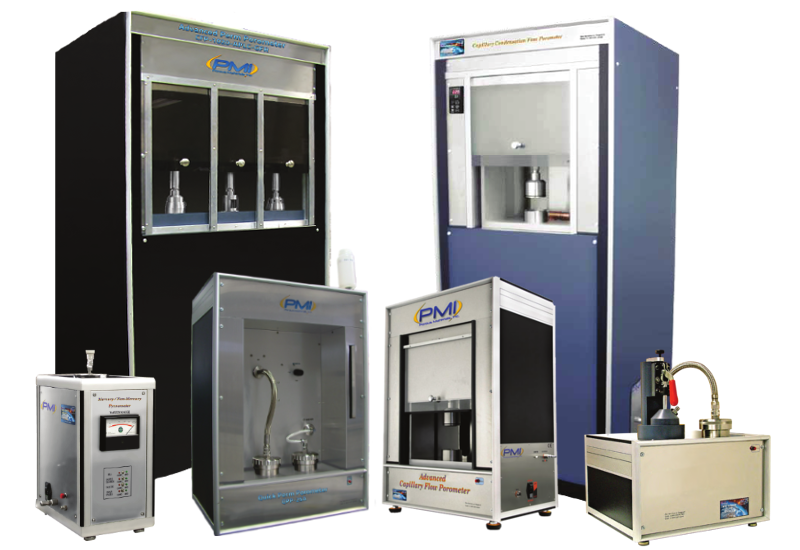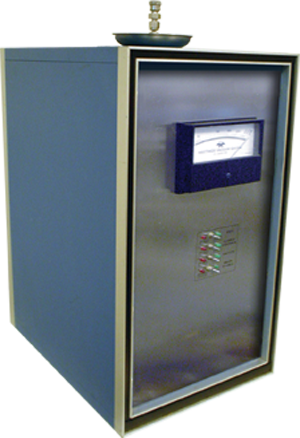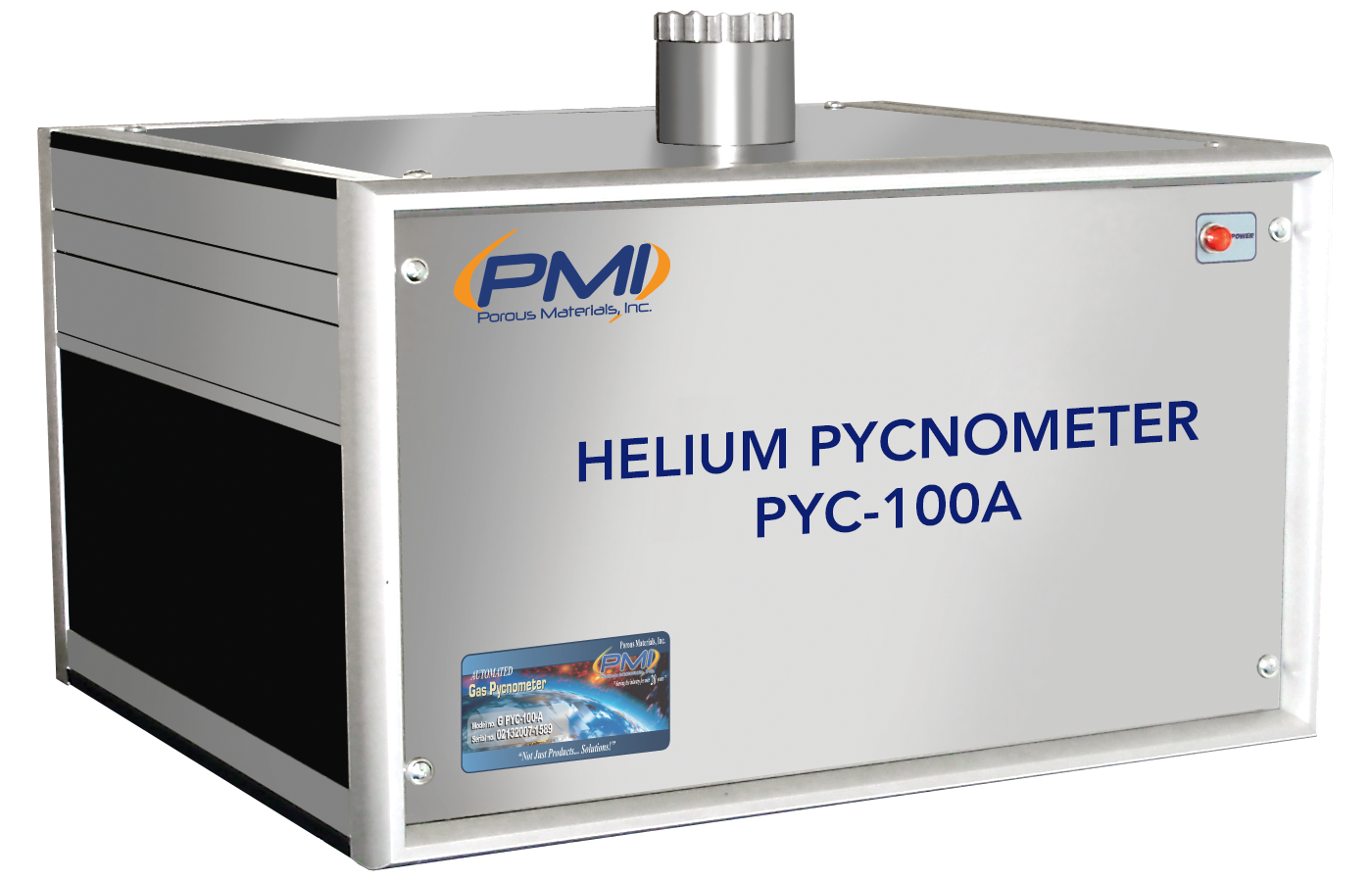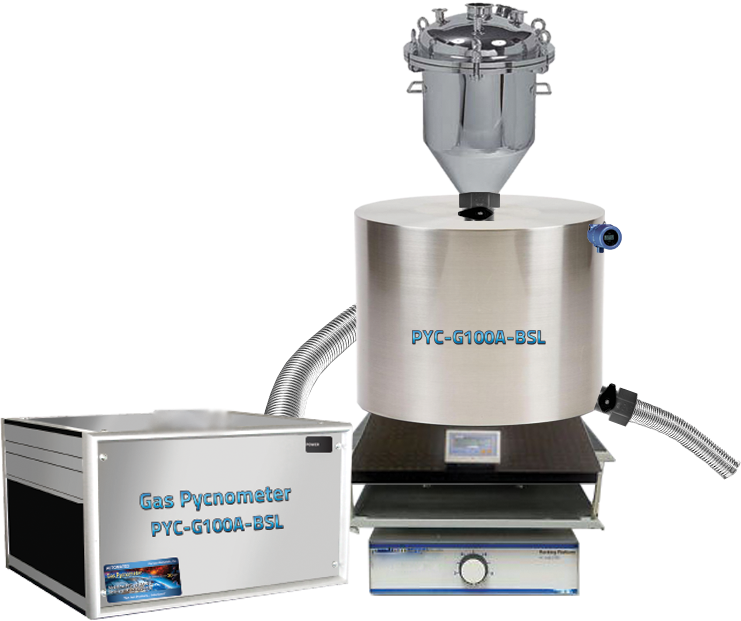PRODUCTS
- Home
- Products
Gas Pycnometer and Helium Pycnometers
PMI's Gas Pycnometer provides the user with a reliable measure of absolute density. The Gas Pycnometer performs a fully-automated, non-destructive test that allows the user control of the number of test iterations, and thus test length and accuracy.
Mercury Pycnometer
PMI's Mercury Pycnometer provides the user with a measurement of bulk density. The Mercury Pycnometer is easy-to-use, provides accurate results in less than 10 minutes, and accommodates a wide range of samples.
PYC-100A
PMI's Automated Gas and Helium Pycnometer is used to determine the true volume and true density of powders and bulk solids using high-precision volume measurements and density calculations. The true volume of a solid is calculated from the measured drop in pressure when a known amount of gas is allowed to expand into a chamber containing sample. Thus, the true volume obtained by pycnometry includes any pore volume accessible to the gas. Helium is the preferred gas, because it exhibits ideal gas behavior. However, almost any non-corrosive gas including air can be used. The true density is obtained by dividing the weight of the sample by true volume.
PYC-G100A-BSL
PMI's Automated Gas Pycnometer is used to determine the true volume and true density of powders and bulk solids using high-precision volume measurements and density calculations. The true volume of a solid is calculated from the measured drop in pressure when a known amount of gas is allowed to expand into a chamber containing the sample. Thus, the true volume obtained by pycnometry includes any pore volume accessible to the gas. The Gas Pycnometer measures the true volume and density of solid powders such as calcined petroleum coke.
Are You Satisfied With The High Quality Products & testing services offered by PMI ?






